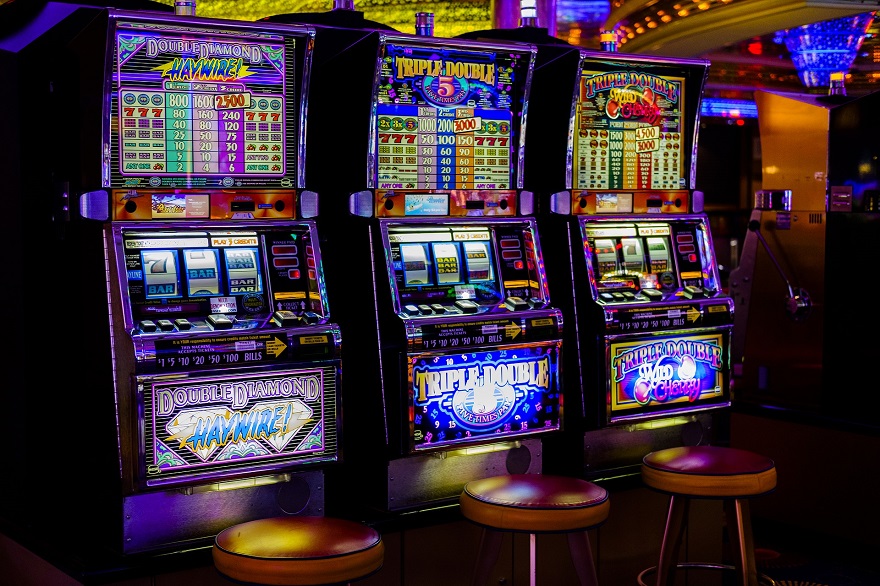
In the world of gambling, in which chance and strategy intersect, a unique tapestry of beliefs manifests—one that braids luck, fate, and the enigmatic nature of casino games. Casinos, bustling with excitement and anticipation, are not just places for placing bets; they are also arenas in which superstitions thrive. Ranging from the novice player to the seasoned gambler, these mysterious practices often shape how individuals approach the games they play, holding the belief that their actions can influence the outcome in ways that go beyond mere probability.
As players gather around roulette wheels, blackjack tables, and slot machines, the atmosphere is thick with stories of lucky charms, rituals, and codified behavior that defy logic yet provide a sense of comfort. It could be the case that it’s wearing a specific outfit, following a particular sequence of bets, or even avoiding certain numbers, the attachment to various superstitions reflects a deep-rooted desire to control the uncontrollable. This article delves into the captivating world of casino game superstitions, examining the beliefs that simultaneously entertain and mystify those who dare to play.
Historical Origins of Superstitions
Betting games have long been connected with an variety of superstitions that can be traced to early civilizations. The roots of these notions can be linked to humanity’s fundamental wish to influence the uncertain outcomes related with chance and randomness. In ancient civilizations, activities of chance were often tied to ritualistic practices. Gamblers would call upon favor or request favor from deities, believing that their actions could affect the odds in their benefit. This foundation laid the basis for the myriad of superstitions that spread as casino games evolved over time.
During the Middle Ages, gambling became a widespread hobby across European nations, and with it, a rich tapestry of superstitions appeared. Players adopted numerous rituals and charms, believing they could affect the consequences of games. The value of digits, in particular, started to appear in superstitions around card games and dice. The number 7 was often considered lucky, while other numbers carried bad connotations. keonhacai These beliefs mirrored the social contexts of the time, changing as they moved through generations and adapted to new gaming environments.
As casinos emerged in the 17th century, particularly in the Italian peninsula and France, the atmosphere surrounding betting became saturated in mystique. The growing availability of casino games allowed for the dissemination and diversification of superstitions among players. Concepts like fortunate charms, specific seating locations, and rituals gained importance, creating a distinct culture within casinos. As these traditions continued to thrive, they became integral to the character of casino activities, illustrating how history and tradition shape the convictions that influence how players engage with luck.
Popular Casino Superstitions
Superstitions surrounding gambling games are plentiful and varied, reflecting the hopes and anxieties of players as they participate in random activities. One of the most common views is that specific digits bring fortune or misfortune. For example, the digit seven is often seen as a lucky number, frequently sought after by players looking for a favorable outcome. Conversely, the number 13 is routinely considered unlucky, leading many players to avoid it during their gambling sessions.
Another frequent belief relates to practices that players believe can influence their chances. It could be blowing gently on the dice before a roll, using a particular gesture to place a wager, or even wearing particular items of attire, many individuals feel that these actions can tilt luck in their benefit. These rituals offer a feeling of control in an otherwise random environment, strengthening the idea that fortune can be manufactured through personal convictions and customs.
Lastly, the environment and vibe of the gambling house itself adds to myths. Many players suggest that the presence of specific symbols, such as four-leaved clovers or lucky coins, can enhance their chances of winning. Additionally, players might adhere to the belief that winning streaks can be interrupted by mundane events, such as someone passing by or a spill at the table. The shared environment in a casino can amplify these superstitions, creating a shared culture of myths that transcends single experiences.
Impact of Superstitions on Players
Superstitions play a significant role in the psychology of gamblers, often influencing their behavior and decision-making. A lot of gamblers believe that fortune can be manipulated through various rituals, such as donning a talisman, choosing particular hues, or avoiding certain numbers. This reliance on superstitions can create a feeling of authority in an environment that is inherently unpredictable. Players frequently feel more self-assured and engaged when they believe that their actions could sway the outcome of a game in their advantage.
The influence of these superstitions extends beyond individual players, affecting the overall atmosphere inside the casino. For instance, a player who holds the belief in the luck of a particular slot machine might draw a gathering, as onlookers are fascinated by their apparent luck. This collective belief can amplify excitement and create a dynamic environment, leading to an engaging experience even for those who may not necessarily be believers themselves. The buzz around certain games can lead to higher participation and extended playing sessions, supporting the casino’s vibrant social scene.
In some instances, superstitions can lead to negative effects for players. Relying too heavily on rituals can result in bad gambling decisions, as some may overlook basic strategies in favor of unfounded beliefs. Additionally, the pressure to perform rituals may heighten anxiety and stress levels, detracting from the pleasure of the experience. Ultimately, while superstitions can enhance the excitement of playing casino games, they can also lead to poor choices that overshadow the fun and entertainment intended in the casino experience.
